On October 19 and 20, 2024, the academic symposium titled “Development and Assessment of AI-oriented Language Competence: Cross-disciplinary Studies and Integration” was successfully held on Zijingang Campus, Zhejiang University.
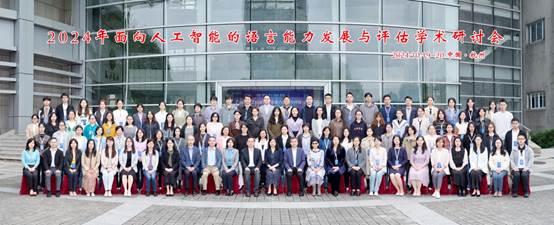
The symposium, around the theme “Development and Assessment of AI-oriented Language Competence: Cross-disciplinary Studies and Integration”, was hosted by the School of International Studies (SIS) and the Research Center for Language Development and Assessment of Zhejiang University. Renowned experts and scholars from fields such as foreign language education, AI, and educational technology, as well as graduate students and teachers from over 40 universities at home and abroad were present at the symposium to delve into important topics in the development of language competence and language assessment in the new era.
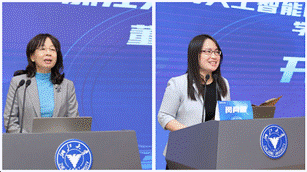
The opening ceremony, moderated by Professor MIN Shangchao, Vice Dean, was held on the morning of October 19. Professor DONG Yanping, Dean of the School of International Studies, Zhejiang University, was present and delivered the opening speech.
Four keynote speakers, namely Professor YU Hongliang of Yangzhou University, Professor CHEN Wenzhi of Zhejiang University, Professor LIANG Maocheng of Beihang University, and Professor HE Lianzhen of Zhejiang University, shared their insightful analyses and perspectives on key issues related to language ability development and assessment in the AI era from their fields.
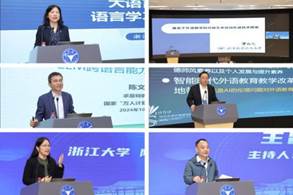
The symposium also hosted a themed workshop on “The Application of Generative Artificial Intelligence in Foreign Language Teaching and Assessment”. Associate Professor ZOU Bin from Xi’an Jiaotong-Liverpool University, Associate Professor ZHANG Jie from Shanghai University of Finance and Economics, Professor SHEN Lin from Guizhou University, and Professor MIN Shangchao from Zhejiang University delivered speeches, i.e., “The Application and Research of AI in Promoting Oral English Teaching”, “AI-Assisted Classroom Writing Assessment Research and Practice: A Case Study of Post-Reading Tasks”, “VR-Assisted Enhancement of College English Speaking Intercultural Competence”, and “Generative AI Empowering College Foreign Language Teaching Practice Based on the Huixue Smart Learning Platform” respectively, demonstrating how to apply AI in enhancing foreign language teaching and assessment at the university level by citing practical cases.
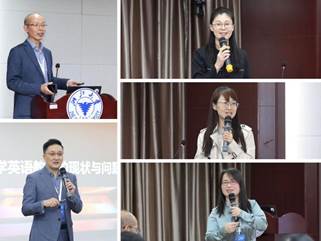
In addition, the symposium featured six panel forums where renowned experts and scholars delivered speeches on “Artificial Intelligence and Language Ability Assessment”, “Artificial Intelligence and Foreign Language Learning”, “Second Language Acquisition and Processing”, “Intelligent Foreign Language Education and Technology”, “Artificial Intelligence and Translation Studies”, and “Digital Intelligence in Foreign Language Teaching” respectively.
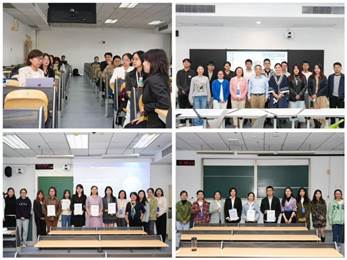
The panel discussions were conducted simultaneously in eight classrooms, where senior scholars, young teachers, and graduate students in the field of language development and assessment shared a series of cutting-edge research findings. Participants engaged in a lively atmosphere of in-depth discussions.
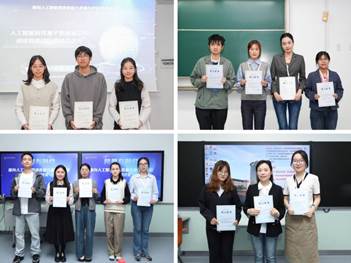
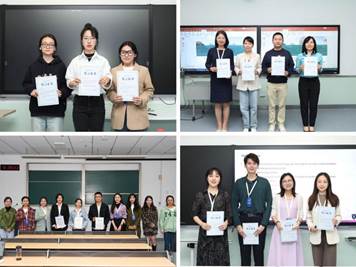
The symposium came to a successful conclusion on the afternoon of October 20, with the closing ceremony moderated by Professor WANG Min from Zhejiang University, who also delivered a closing speech.
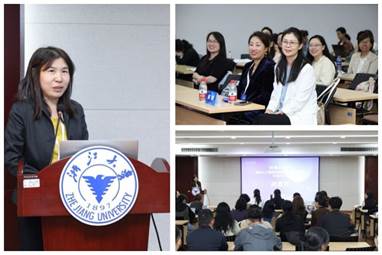
School of International Studies (SIS), Zhejiang University
Research Center for Language Development and Assessment, Zhejiang University
Translated by HAN Yaohui, Proofread by XU Xueying



